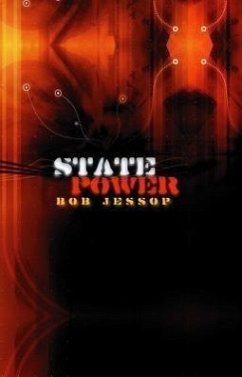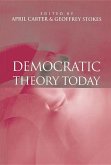Bob Jessop presents an up-to-date account of his distinctive approach to the dialectics of structure and strategy in the exercise of state power. While his earlier work critically surveys other state theories, this book focuses on the development of his own strategic-relational approach. It introduces its main sources, outlines its development, applies this approach to four case studies, and sketches a strategic-relational research agenda. Thus the book presents a comprehensive theoretical statement of the approach and guidelines for its application. Key features of the book include: an account of the authors theoretical development; a review of recent developments in state theory and the cultural turn in political economy; critical strategic-relational re-readings of major state theorists Marx on political representation, Gramsci on the spatiality of state power, Poulantzas on the state as a social relation, and the later Foucault on statecraft; applications of the strategic-relational approach to important issues concerning the contemporary state: its gendered selectivity, the future of the national state, the states temporal sovereignty, and the relevance of multi-scalar meta-governance in Europe for the more general future of the state. The book concludes with recommendations for future strategic-relational research in political economy and state theory.
"A work of cutting edge state theory by the leading figurein the field."
Political Studies Review
"Jessop is excellent on the paradox of the state. His overallsubstantive project is about as exciting as it gets."
British Journal of Sociology
"Jessop's book draws upon extensive reading to provide someuseful methodological pointers for analysing states and challengescrude approaches to state power, including simplistic oppositionsof state and civil society, politics and economics, global andnational."
International Socialism
"Definitive, in the fullest sense of the word, State Powerrepresents the culmination of three decades of path-breaking workfrom the world?s most restlessly creative state theorist. This isJessop's tour de force."
Jamie Peck, University of Wisconsin-Madison
"Bob Jessop has long been one of the most outstanding andinfluential contemporary exponents of state theory. In his new bookhe returns to reconsider some of the theoretical sources of his owndistinctive strategic-relational approach ? Marx, Gramsci,Foucault, and, above all, Nicos Poulantzas ? before, suitablyrefreshed, addressing more substantive issues. The resultingreflections will be of great value to anyone struggling to makesense of the state in the era of neo-liberal globalization."
Alex Callinicos, King's College London
"Not for the first time, Bob Jessop's theoreticallysophisticated and empirically astute dissection of social andpolitical trends serves to breathe fresh life into the theory ofthe capitalist state. Yet what sets this work apart, above all, isthe way in which it draws together three decades of profoundinsight into a tightly integrated framework for social, politicaland economic analysis. This, the most complete statement of thestrategic-relational approach, should be required reading for allanalysts, students and, ideally, all agents and subjects of statepower."
Colin Hay, University of Sheffield
Political Studies Review
"Jessop is excellent on the paradox of the state. His overallsubstantive project is about as exciting as it gets."
British Journal of Sociology
"Jessop's book draws upon extensive reading to provide someuseful methodological pointers for analysing states and challengescrude approaches to state power, including simplistic oppositionsof state and civil society, politics and economics, global andnational."
International Socialism
"Definitive, in the fullest sense of the word, State Powerrepresents the culmination of three decades of path-breaking workfrom the world?s most restlessly creative state theorist. This isJessop's tour de force."
Jamie Peck, University of Wisconsin-Madison
"Bob Jessop has long been one of the most outstanding andinfluential contemporary exponents of state theory. In his new bookhe returns to reconsider some of the theoretical sources of his owndistinctive strategic-relational approach ? Marx, Gramsci,Foucault, and, above all, Nicos Poulantzas ? before, suitablyrefreshed, addressing more substantive issues. The resultingreflections will be of great value to anyone struggling to makesense of the state in the era of neo-liberal globalization."
Alex Callinicos, King's College London
"Not for the first time, Bob Jessop's theoreticallysophisticated and empirically astute dissection of social andpolitical trends serves to breathe fresh life into the theory ofthe capitalist state. Yet what sets this work apart, above all, isthe way in which it draws together three decades of profoundinsight into a tightly integrated framework for social, politicaland economic analysis. This, the most complete statement of thestrategic-relational approach, should be required reading for allanalysts, students and, ideally, all agents and subjects of statepower."
Colin Hay, University of Sheffield








